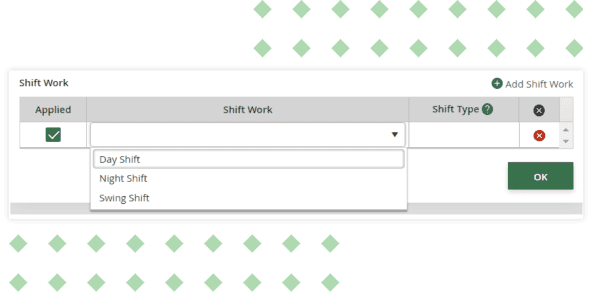Definition
What is shift differential pay?
Shift differentials are used to adjust the compensation of an employee due to the time of day or the day of the week that the employee worked. For example, an employee working the midnight shift is generally compensated higher than one who works a traditional 9-to-5 shift. An employee who works on a holiday may also receive a shift differential. Shift differentials are not required by law, as in the case of Fair Labor Standards Act (FLSA) requirements, but will encourage employee retention by incentivizing employees to take less desirable shifts. Shift pay increases are generally given to hourly employees but can also apply to salaried employees.

Requirements
Employees must be paid the same rate if they work the same shift
The shift differential applied to an employee’s pay must be the same for all employees who work that shift. For example, if the typical rate for working on holidays is 1.5 times the employee’s regular hourly pay, then that rate must apply to all employees who work that shift.
Shift differentials are used to incentivize employees who work outside of traditional 9-to-5 hours.

Graveyard Shift

Weekends

Holidays
Industry
Industries that typically have shift differentials
Shift differentials can be used across all industries, but here are examples of industries that commonly use them.

Manufacturing

Retail

Health Care

Restaurants

Customer Service

Retail

Restaurants
Why
Why employers should care about shift differentials
Shift differentials are crucial to retaining employees and ensuring that important shifts are consistently staffed in full. Employees will generally stay at their jobs longer if they feel they are being properly compensated. It is also important that employers do not overpay employees for working these shifts as this can eat into potential profits. Employers can prevent overpaying by subscribing to a compensation management solution, such as ERI’s Assessor Platform, to ensure they implement a shift differential policy with competitive rates.
Contact Us
How ERI can help
ERI’s Assessor Platform can account for shift differentials for multiple employees. Our powerful compensation management system allows you to easily compensate employees differently based on the shifts that they work. These differentials are calculated using ERI’s robust database, ensuring that your differentials are comparable to those in your specific industry. See how shift differentials can affect pay by trying a demo version of our compensation software. For additional information on how we calculate shift differentials or to get specific shift differential information for roles, please contact us.
